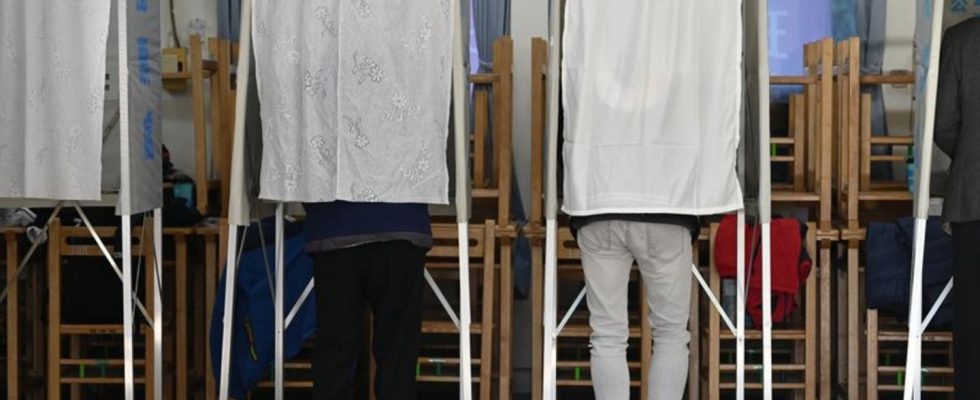Choose
Taiwan votes: result crucial for relationship with China
Taiwan is electing a new president and parliament today. photo
© Johannes Neudecker/dpa
Taiwan elects a new president and thus decides how it will deal with China. The candidates want to deal with Beijing differently – but they agree on one point.
Overshadowed by the tense relationship with its powerful neighbor China, presidential and parliamentary elections began in Taiwan on Saturday. The candidate of the ruling and for independence Taiwan’s Democratic Progressive Party (DPP), William Lai, probably has the strongest competition in the candidates from the China-friendly conservative Kuomintang Party (KMT) and the Taiwan People’s Party (TPP), which was only founded in 2019. President Tsai Ing-wen is not allowed to run again after two terms in office. A total of around 19.5 million eligible voters at home and abroad are called upon to cast their votes on the East Asian island.
The result, which is expected late on Saturday evening, is seen as pointing the way for the future relationship with China. Its ruling Communist Party considers Taiwan to be part of the mainland. Beijing repeatedly threatened to use military force if peaceful reunification did not come about. China’s military demonstrates its military might almost daily with fighter jets penetrating Taiwan’s air defense zone.
A possible conflict in the Taiwan Strait, the strait between China and Taiwan, would probably drag the USA, as Taipei’s ally, into the conflict. Washington had assured Taipei that it would support the island’s defense. In addition, experts say there would be a huge impact on the global economy, as the Taiwan Strait is a very important shipping route and Taiwan produces important products for the global market.
Worse relationship with China
The DPP has been in power under President Tsai since 2016. The party stands for independence for Taiwan. Therefore, the Chinese government broke off contact with Taipei. Dealing with China was one of the most important issues in the election campaign.
Domestic policy was about high rent prices, little increase in wages and Taiwan’s health system for seniors. DPP presidential candidate William Lai is not considering an official declaration of independence. The KMT and TPP candidates are relying on rapprochement with the mainland, for example through cultural or economic exchanges.
Deterrence through armament
The parties’ presidential candidates are betting on more spending on national defense to deter Beijing from an invasion. Lai told tens of thousands of supporters at a campaign rally in Taipei: “Peace is based on strength and not on the benevolence of the invaders.” Ko Wen-je of the People’s Party (TPP) said Taiwan must let China know that it would pay a heavy price if it invaded.
Because very few countries have recognized Taiwan with its approximately 23 million inhabitants, the island republic has no official foreign missions where emigrants could cast their votes. That’s why the Chens, a couple in their 70s, traveled from Los Angeles in the USA to Taipei specifically to vote. “Taiwan has to win,” Ms. Chen told the German Press Agency at a DPP election campaign event. Taipei resident Ko Hsiu-hisa said she cast her vote for the DPP. Their representatives had used more positive words in their election campaign, the 66-year-old told the dpa after casting her vote.
Also parliamentary election
Taiwan is also electing a new parliament in which the DPP previously had an absolute majority. If no party breaks the 50 percent mark, the work of the incoming government would be made significantly more difficult by the necessary compromises on political projects.
In Taiwan, the president, who is also commander-in-chief of the armed forces, appoints the prime minister and, on his recommendation, the government cabinet. In the past, politicians from other parties have also been entrusted with ministerial office.

